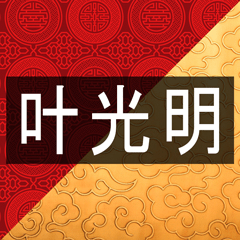The Director's Blog
The Chinese Union Bible
According to Jost Oliver Zetzsche, "the first edition of the completed Mandarin Union Version Bible was received from the printer on April 22, 1919." We have just passed the 100th anniversary of the first printed edition of the Chinese Union Bible (the CUV). That Bible is the defining version of the Chinese church, and its impact cannot be overestimated. This is worth remembering in the face of threats by the Mainland Chinese authorities to “sinicize” the Bible - to rewrite the Bible to “adapt to socialist society.” The idea is to “implement socialist core values by ‘retranslating’ the Old Testament with some Buddhist scripture and Confucian teachings and adding new commentary to the New Testament to make socialist ideals and Chinese culture seem more divine” (The Christian Post).
ChinaSource recently listed some helpful facts about the Chinese Union Bible. They are worth pondering to help us understand its deep importance.
- The Chinese Union Version in effect defined Chinese theological terms. “Ever since its translation of key biblical terms, (they have) been deeply ingrained in the theological DNA of the Chinese Protestant community around the world. It is fair to say that this is the only theological language system known and used unquestionably by this (Chinese) community up to today” (Kevin Xiyi Yao). Thus a plan to rewrite the Bible is obviously an attempt to change theological truths.
- “The past one hundred years have been a turbulent time for the Protestant church in China. It went through numerous wars, revolutions, constant pressure from an atheist regime, and finally all-out persecution during the Cultural Revolution (1966-1976). Many Chinese believers would attest to the fact that it is in the texts of the CUV that they found comfort and strength” (Kevin Xiyi Yao). To rewrite the Bible, as opposed to modernising the translation, has to be seen as dangerous to the historic faith of the Chinese church.
- “From antiquity, Chinese culture has valued the written word, and Chinese people valued jing, or scriptures…. This background answers one of the key questions regarding the origins of the Chinese Bible, that is, what came first to China, the Bible or the church? The answer is - the Bible. The translation of the Bible, or the establishment of a jing, was the prerequisite to winning converts… The Bible not only provided the Word of God to the Chinese people, it also brought liberation and opportunity to women and people of all classes.” (Mark Strand). To change the Bible is to imperil the powerful spiritual and social changes it has brought to the Chinese people.
The Union Bible has places of less than perfect translation. “One example of word choice error was the word used for “sin” (ἁμαρτία in Greek, or “to miss the mark”) which was translated as zui (罪), crime, rather than guofan (过 犯), miss the mark, a more accurate translation. This created the misconception among many generations of Chinese listeners that sin is the breaking of civil and moral laws, rather than missing God’s mark.” (Mark Strand). But to attempt to improve translation is a very different approach than to exchange the truth for “some Buddhist scripture and Confucian teachings.”
- Give thanks for the defining and saving power of the Word of God, brought to the Chinese people through the Union version.
- Pray for any involved in genuine Bible translation that they would be anointed to help bring the truth of Christ to many. And for those involved in false translations to be hindered at every step!
- Pray that the Scriptures might see a fresh release and empowering amongst Chinese people inside and outside of China so that many might find Jesus through His word.

